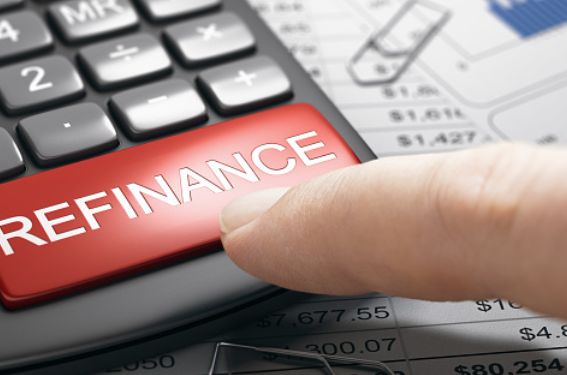No matter your credit score, you should always be on the lookout to refinance your loans: Your mortgage, your car, all of your small loans, even your credit card debt. Do you have a lot of bad debt weighing heavily on your wallet and your pride? Refinance! There is no other way to cut yourself the slack you need. But before you start getting online and filling out application after application, there are some things you should be aware of. The hidden costs associated with refinancing should motivate everyone to look through more than several different offers before choosing the best option. The goal is to win in every single category.
Being Tentative Could Save Your Credit Score
The first is that of your credit score. Of course, you should make yourself aware of what kind of credit you have long before you start to hone in on a particular refinancing option. Lending institutions will do this for you in the end, but you should always stay one step ahead of them. And be wary of how they will impact your credit score: If you didn’t know, every time your credit gets a hard check, your score is docked up to 5 points. On top of that, making inquiries to too many institutions over a relatively short timeframe will also negatively affect your score- by up to 10 points! If your credit score is barely teetering over the line between fair and good you will especially want to watch out, as a slight drop could make huge difference in available refinance options.
Choosing A Loan Broker May Trade Certain Costs For Others
A Great way to avoid those two impacts to your credit score is to go through a loan brokerage. A broker will help you understand what kind of refinancing is available to you before you even apply, as well as recommend several institutions. They will also save you time and effort in filling out multiple applications so that you can focus solely on evaluating the offers they get from responding lenders. Visit http://www.refinansiere.net/refinansieringslån/ to explore a myriad of refinancing brokers. On the other hand, a broker may charge a fee for their services; usually as a percentage of the refinanced amount. For example, mortgage brokers charge a steady 1% which adds up to a lot, considering the cost of a home nowadays.
The Price Of Waiving Closing Costs
If you are tight on money and can’t afford the closing costs of refinancing your mortgage, a lender may waive these fees. But in exchange you will end up paying more in interest over time. Say the APR for a refinancing package with paid closing costs was going to be 3%, but since you had them waived it was increased to 4%. On a $400,000 refinance, the closing costs are anywhere between $8,000 and $20,000. So pretend in the first case you paid $14,000. Then, when you calculate the compounded interest, your total financing costs on a 30-year loan would be $206,560+$14,000= $220,656. On the other hand, with the waived fees the total cost to finance increases to $246,712. Take the difference and you’ve got $26,056 more to pay if you don’t pay those closing costs.

Limits On Cash-Out Refinancing
If you seek cash-out refinancing on your house, you might end up paying extra if you are not careful. Private mortgage insurance (PMI) is required when you take out more than 80% of the value of the house. Otherwise, banks seem to like to keep about 20% of the home’s equity as collateral in case of foreclosure. This PMI could be anywhere from .55% to 2.25% of the total cost of the home, and though this fee doesn’t compound like the APR in the previous paragraph, it can still amount to thousands of dollars.
Refinancing An Unsecured Loan
A loan that is not secure is not backed by any form of collateral, and as a result, are often much shorter term and come with much higher interest rates. Luckily you can refinance them, usually through another lender to extend the duration of the loan and to lower monthly payments. But, since the initial interest rates for unsecured loans are so much higher than with secured ones, refinancing them may still cost you quite a bit more in interest payments over the long run. Therefore when someone decides to refinance their debt they may choose to offer collateral as a way to secure the new loan. This is a common practice with auto loans, as the original one from the dealership usually comes with some pretty confining conditions.
Why Refinancing Student Loans Could Cost You
Once you refinance student loans, it cannot be undone. This can open up the door for a few risks. Federal student loans come with their own array of protections, like student debt forgiveness, or income-based payment plans. The latter can be beneficial for those recent graduates who may take a few years to establish their career; perhaps experiencing several periods unemployment or low-paying jobs. But when a former student goes to refinance their student loans, these benefits will no longer be available. You will also lose out on student loan interest tax-deduction meaning you won’t be able to deduct the amount of interest you pay each year-from your taxable income.
Variable Interest Rates
If you are looking to refinance for the lowest rate possible, most institutions only offer variable interest rates (VIR). This can be beneficial or detrimental, depending on the times. This year alone the Federal Reserve has already hiked the interest rate twice, and is planning on raising it five more times. Who knows where the federal funds rate will be in a few years. But what we can tell from here is that it is on its way up. In this case, refinancing to consolidate and extend your current loans- all while having to deal with a VIR for the next several to many years- could prove to be detrimental.














